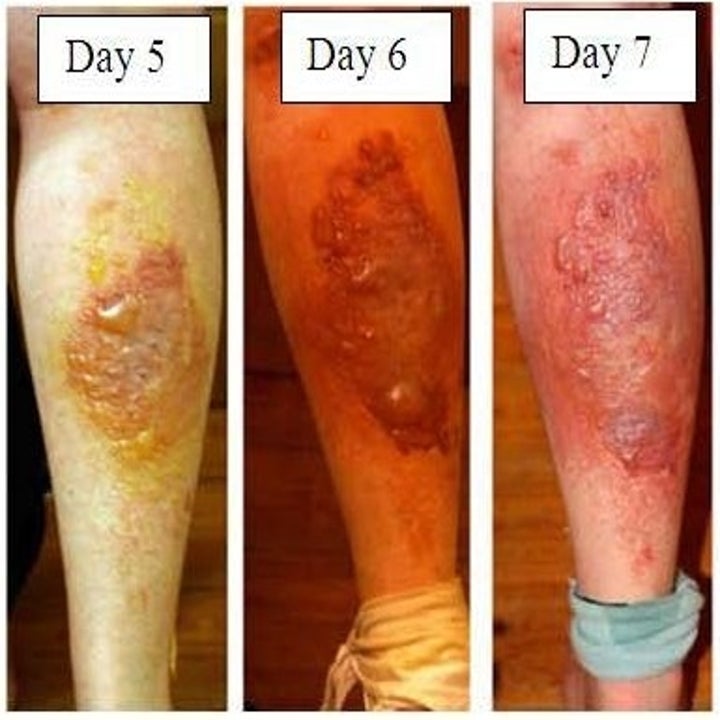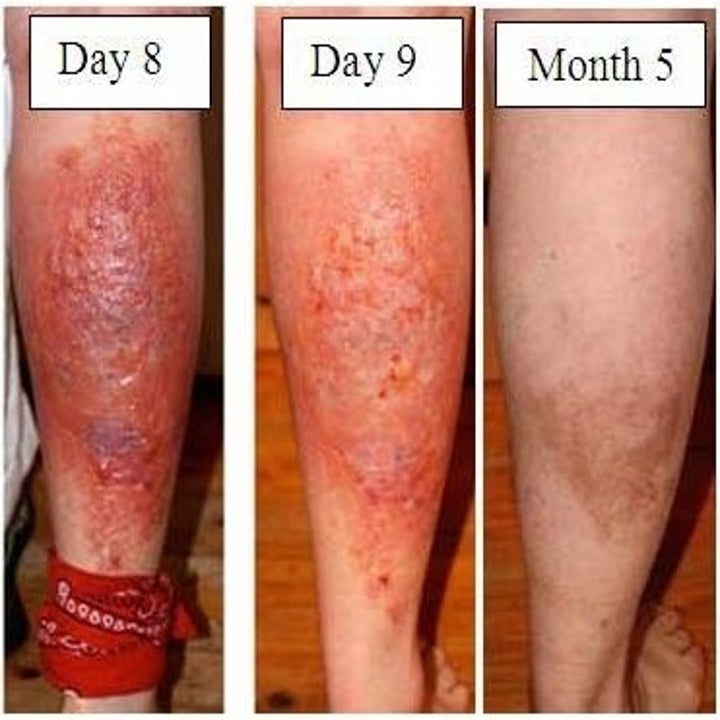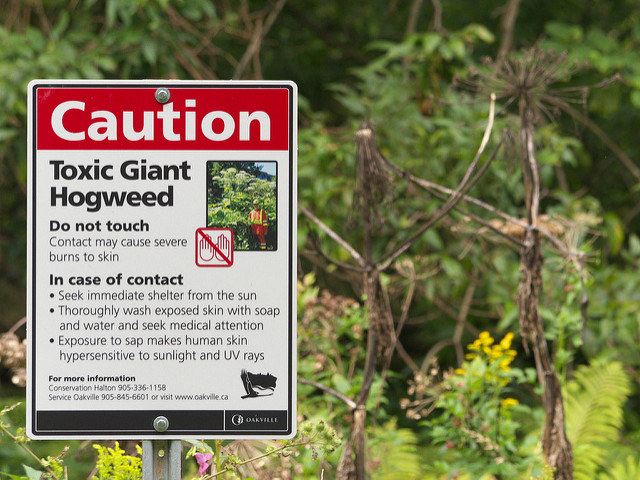
LISTEN to this so you can hear what a repulsive jerk hogan gidley is (proving his qualification to be a spokesperson for the fascist drumpf/trump-pence administration) as he tries to defend separating undocumented families, children from parents, when they cross into the U.S. from Mexico. He is nasty, rude and gets madder as the interview goes on because the reporters do not want drumpf/trump lies repeated as answers to their questions. Click on the story header to hear the report. This from NPR.....
Southern Border Crisis Has To Be Fixed By Congress, Gidley Says
Heard on Morning Edition
David Greene and Steve Inskeep talk to White House spokesman Hogan Gidley about the administration's policy to separate families at the southern border. NPR's Mara Liasson weighs in on the discussion.
DAVID GREENE, HOST:
Two sounds from the debate over border enforcement. Both were heard yesterday afternoon.
STEVE INSKEEP, HOST:
Both involve the Trump administration's zero tolerance policy, referring all people who cross the border illegally for criminal prosecution, even parents whose children are immediately taken away.
GREENE: At the White House, the secretary of Homeland Security, Kirstjen Nielsen, fiercely defended this policy.
(SOUNDBITE OF ARCHIVED RECORDING)
UNIDENTIFIED PERSON #1: Are you intending for this to play out as it is playing out? Are you intending for parents to be separated from their children? Are you intending to send a message?
KIRSTJEN NIELSEN: I find that offensive. No, because why would I ever create a policy that purposely does that?
GREENE: Nielsen maintained her agency is enforcing the law. Now, the same afternoon, ProPublica published an audiotape. It has not been verified from NPR but is described as a recording from inside a border detention facility. And you can hear children here wailing for their parents.
(SOUNDBITE OF ARCHIVED RECORDING)
UNIDENTIFIED CHILDREN: (Crying).
UNIDENTIFIED PERSON #2: (Foreign language spoken).
GREENE: A man is heard on the tape saying, we have an orchestra here. We're joined now by White House Deputy Press Secretary Hogan Gidley. Hogan, thanks for coming on the show. We appreciate it.
HOGAN GIDLEY: Absolutely. Thanks so much for the time.
GREENE: There's a moment on the tape there that we heard when a small girl sounds like she's trying to negotiate with adults, saying, at least can I go with my aunt? What do you say to Americans who are finding this just an unacceptable outcome?
GIDLEY: Well, it is. It's a very sad situation. You heard Secretary Nielsen make that point yesterday. You heard the president himself make that point from the North Lawn last week when he went out and surprised the country and basically did a gaggle there from the North Lawn - unscripted, unfettered. And he explained how much he hates the situation.
GREENE: Then why doesn't he just end it? Why doesn't he just end it if he hates the situation? I mean, this is a policy that was announced in a press release by the Department of Justice. Attorney General Jeff Sessions gave a speech. The White House chief of staff came on our air and said, explain the reasoning for separation, saying that it can be a deterrent. I mean, the president has the power to end this now.
GIDLEY: Well, what you're asking now is, why don't we just ignore the law? And that's something that this administration's not going to do. While previous administrations may have done that, it's our job as the executive branch to enforce the law.
GREENE: Can we be clear? What law forces the separation of parents from their children?
GIDLEY: Well, there are several, actually. One in the Flores consent agreement, which basically says that unaccompanied children can only be held for 20 days in custody with their parents. So after 20 days, by law, you have to release them. The problem with that is...
GREENE: But let me just follow up on that, if I can. That there...
GIDLEY: ...Furthering the separation of the family. The second part of that is a ruling by the most liberal court in the land - the 9th Circuit, which Liberals typically praise - made that 20-day limit to children also extend to accompanied minors when they come to this country as well. So the separation has to occur by law. And, in fact, in 2008, Congress passed a Trafficking Victims Protection Reauthorization Act.
GREENE: Let me just follow up on those laws you're mentioning, if I can - if I can, Hogan. I mean, before - are those - those rules were all in place previously, and the Trump administration decided to make a change in terms of how to enforce the law.
Alan Dershowitz, who's a lawyer - Harvard lawyer who President Trump often praises, has said that the president has every power right now to go back and reverse this decision that came from the Justice Department. Dershowitz even quoted Harry Truman as saying, the buck stops here. So does President Donald Trump really want to make the argument that the buck does not stop with him?
GIDLEY: Well, no. The buck stops with the people who make the laws in this country, and that's Congress. And they could change this right now.
GREENE: Well, let's...
GIDLEY: That is so simple for them to do. And they can make it where they could actually amend the Flores agreement, which is something that Secretary Nielsen talked about yesterday.
The three loopholes that actually cause the most problem are the 2008 TVPR rule, which actually encourages smuggling into this country. The second one is the Flores settlement agreement. You can change that to allow parents who come here illegally or who come here through ports of entry and claim asylum to be united with their children for the duration. The problem is...
INSKEEP: Well, Mr. Gidley, if I can...
GIDLEY: ...Once they claim asylum, it takes longer than 20 days, so you have to separate, by law, the children from their parents. It's a horrible situation, but your hands are tied when the law dictates that's what happens.
INSKEEP: Well, let's just look into that because you mentioned members of Congress who disagree that your hands are tied, or disagree that this is the sole thing that you can do.
We had on the program yesterday Republican Representative Will Hurd. He's a Texas representative. He represents a lot of the border, as you probably know. And he said there certainly are alternatives to this policy which the president could choose under the law. Let's listen to a little bit of that.
(SOUNDBITE OF ARCHIVED BROADCAST)
WILL HURD: We should be working with the governments in El Salvador and some of these other countries in Central America to address the root causes that is causing this migration. We need more immigration judges. We need to be doing alternatives to detentions, which keeps a family together. And we need to have smart border security.
All of these things we can do, and we should be prioritizing this rather than spending the time of building tent cities and trying to separate kids from their parents.
INSKEEP: He's saying that you are not - you do not have your hands tied. Your sole choice is not tent cities - that that's a false statement.
GIDLEY: What he's also saying is that he wants to work with governments of El Salvador, and that's fine. But he's refusing to work within the government of the United States, which could clearly fix this in no time.
If Congress would come together, close these loopholes, we wouldn't have this problem. You're emboldening child smuggling. You're emboldening drug smuggling. You're making all of the woes and ills that are occurring right now in this country appear as though they cannot be fixed.
But for the executive branch, that's just not the case. A permanent, lasting solution is what President Donald Trump wants. He put forth a 70-point immigration plan nine months ago that would've fixed this. You guys covered extensively the Schumer shutdown when that occurred as well, clearly delineating what the president wanted between what Democrats wanted.
We tried to fix this on multiple occasions, even up to and including giving three times the amount of DACA recipients that Barack Obama offered. And Donald Trump even offered permanent citizenship, whereas Barack Obama only offered legalization.
INSKEEP: OK. OK. I...
GIDLEY: He's been over backwards trying to get this fixed, and Congress can fix it today.
INSKEEP: I understand you want to review that, and I appreciate the review. But let's listen to the way that this debate has been confused.
President Trump has made it clear, at least to the ears of our correspondents, that he wants leverage in this broader immigration negotiation that you are talking about. That's one of the reasons he's pursuing this policy. He's also blaming the policy on Democrats. Let's listen to some of the president.
(SOUNDBITE OF ARCHIVED RECORDING)
PRESIDENT DONALD TRUMP: If the Democrats would sit down instead of obstructing, we could have something done very quickly - good for the children, good for the country, good for the world. It could take place quickly.
INSKEEP: Anthony Scaramucci - friend of the president, former adviser to the president - tweets the following, you can't simultaneously argue that family separation isn't happening, that it is being used as a deterrent, that the Bible justifies it and that it's the Democrats' fault. The president is not being served well by his advisers on this issue, says Anthony Scaramucci. Why are you muddying the issue so much?
GIDLEY: I'm not muddying anything. This can be fixed, and must be fixed, from Congress. They make the laws. The laws say the procedures that are followed by DHS and by custom border protection are the ones that have to be followed. And you can change that.
But let's - let's just drill down exactly what you're asking here. What Democrats are telling us - offering no solution, by the way, just ratcheted-up rhetoric. They're saying, you can't deport families. You can't deport families. You can't detain families, and you can't prosecute families.
INSKEEP: I just want to say one last time...
GIDLEY: But what they want is for them to be released into the interior of the country without any documentation, without any paperwork. That's not what we can do as an enforcement branch of the federal government. We have to enforce the laws.
INSKEEP: Just to be clear one last time, this a policy change that was made by the attorney general of the United States in May.
GIDLEY: No. No, no, no, no, no. It wasn't a policy change. We decided that we were going to uphold the law...
INSKEEP: OK.
GIDLEY: ...The law that had been put in place in 1997 under Bill Clinton in the Flores settlement agreement, a ruling by the 9th Circuit, again, that followed, I think 2014. And then also...
INSKEEP: OK. We've gone through that.
GIDLEY: ...2008 under George W. Bush.
INSKEEP: We've gone through that.
GIDLEY: Don't pretend like this is new. Barack Obama separated families as well. That's what the law dictates.
INSKEEP: OK. Hogan Gidley, thanks very much. Really appreciate you taking the time.
GIDLEY: Absolutely. I hate the situation, but it's got to be fixed by Congress.
INSKEEP: Understood. White House spokesman Hogan Gidley.
GREENE: Just want to bring in for a second here NPR national political correspondent Mara Liasson. And, Mara, Gidley there making the argument that the president's hands are tied. Is anything stopping the president of the United States from calling Attorney General Jeff Sessions and saying, reverse this now?
MARA LIASSON, BYLINE: No, and many Republicans in Congress have said that he can do that. Now the problem is that when you decide that you're going to have zero tolerance, meaning you are going to enforce the law against every single illegal border crosser, then, yes, you have to separate families.
But prosecutors always have discretion. For instance, there are 11 million people in this country illegally. If you had a zero tolerance policy towards them, you'd be rounding up millions of people right now. But the government doesn't. It prioritizes. It says, we're only going to deport people with criminal records, or we're going to make that our priority. In this case, they chose a different priority.
GREENE: And I think the word, priority, was even in the press release that came from the Justice Department. NPR national political correspondent Mara Liasson. Mara, thanks a lot.
LIASSON: Thank you.
(SOUNDBITE OF MUSIC)
Copyright © 2018 NPR. All rights reserved. Visit our website terms of use and permissions pages at www.npr.org for further information.
NPR transcripts are created on a rush deadline by Verb8tm, Inc., an NPR contractor, and produced using a proprietary transcription process developed with NPR. This text may not be in its final form and may be updated or revised in the future. Accuracy and availability may vary. The authoritative record of NPR’s programming is the audio record.









